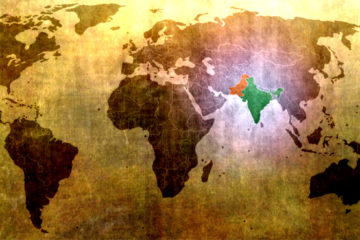
Prolonging Conflict: Global Powers’ Involvement in the India-Pakistan Rivalry
The India-Pakistan conflict is one of the most enduring rivalries of the post-World War era. The two nuclear states have fought four wars, and smaller-scale skirmishes are common occurrences. Since the nuclearization of the two countries in 1998, the nuclear stalemate has been one of the most important facet of this ongoing rivalry. Apart from Kashmir, over which three wars have been fought, constant cross-border terrorist attacks in India have severely limited and disrupted initiatives to defuse the situation. Recently, tensions have flared up because of the decision by the Indian government to abrogate Article 370 of the constitution which gave the state of Jammu and Kashmir special status within the Indian republic. This move has infuriated Pakistan, vowing to …
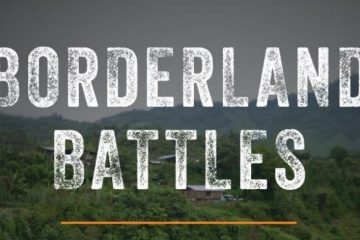
Borderland Battles: Violence, Crime and Governance at the Edges of Colombia’s War
Anette Idler summarizes some of the findings from her new book Borderland Battles, which reveals how violent non-state groups compete for territorial control, co-operate in illicit cross-border activities and replace the state in exerting governance functions in borderlands. Borderlands are like a magnifying glass on some of the most entrenched security challenges of the world. In unstable regions, border areas attract violent non-state groups ranging from rebels and paramilitaries to criminal organisations who exploit their neglect by central governments. These groups compete for territorial control, cooperate in illicit cross-border activities, and substitute for the governance functions usually associated with the state. Studying the Colombian borderlands where armed conflict and organised crime converge demonstrates that the gap between state-centric views on …
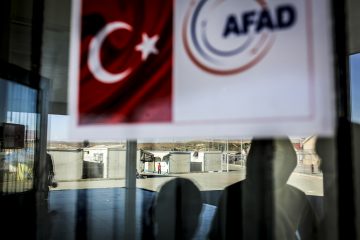
Syrian Refugees in Turkey: How Will Political Events Determine Their Future?
In contemporary world politics, migration and refugee crises are among the most heartrending and vexatious issues. Syria represents one of the most significant humanitarian crises and disasters of our time. Since the conflict has started in 2011, thousands of civilians have been killed, and millions have been forced to flee from their homeland. Since its outbreak, civil war and terrorism have forced millions of people to seek refuge in neighboring countries, including Turkey, Jordan, Egypt and elsewhere. The massive inflow of refugees from Syria makes Turkey the largest host country for Syrian refugees in the region, and the country hosting most refugees in the world in absolute terms. Even though many Syrian refugees currently reside in refugee camps, the vast …

Arming without Aiming? India’s Quest for Material Power and International Influence
In terms of material military power, India does not lag far behind the traditional materially powerful states. The country ranks among the top in terms of the size of and investments in its army, air force, and navy. Furthermore, in 1998, India revealed to the world that it possessed nuclear weapons. Yet, while India has sufficient material power to be categorized as a powerful state, the country does not always think and act like a materially powerful state. For India, more material power has not been necessarily enough to ensure greater international influence. Thus far, India can be accused of ‘arming without aiming’ in its quest for greater international influence. India’s Material Powers India’s raw military power is impressive. The …
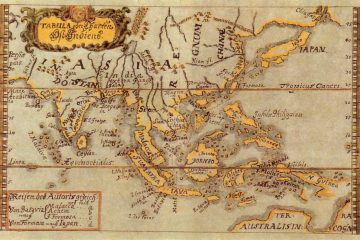
The Scramble for Southeast Asia: ASEAN-Great Power Relations in an Increasingly Contested Region
As the world’s economic and geopolitical centre of gravity shifts eastwards, a scramble for Southeast Asia is underway as the great powers seek to expand and defend their influence in this dynamic region. This renewed great power competition demands that members of ASEAN (Association of Southeast Asian Nations) revise their approaches and rethink their relations to one another and others. Southeast Asia is a crucial node in China’s Belt and Road Initiative (BRI) while the ‘Quad’ of Japan, India, Australia and the US have announced the “Free and Open Indo-Pacific (FOIP)” initiative to balance Beijing’s growing influence. New powers have also begun to make their presence felt in Southeast Asia: South Korean President Moon Jae-in has proclaimed a “New Southern …
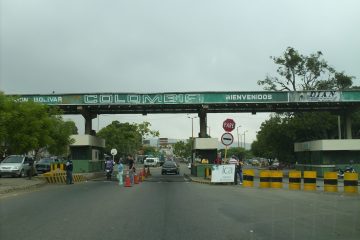
The ‘border effect’ is allowing Venezuela’s crisis to fuel political violence in Colombia
As Venezuela’s crisis continues, so too do its serious repercussions for neighbouring countries. Of the four million Venezuelans that have left the country – the largest migrant crisis in the region’s recent history – more than 1.3 million have arrived in Colombia, on Venezuela’s western border. But this comes at a time when Colombia itself still faces high levels of violence. Though its government signed a peace deal with the FARC guerrilla group in 2016, their counterparts in the National Liberation Army (ELN) have yet to give up arms. Elsewhere, the number of FARC dissidents is rising, and other violent non-state groups – from right-wing paramilitaries to Mexican drug cartels – are jostling for position in the race to fill the void created by demobilisation of …
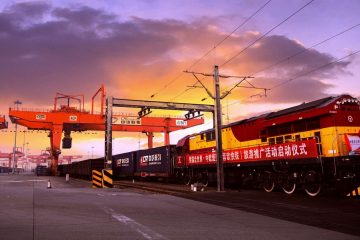
Is China’s Belt and Road Initiative Really What Interpreters Make of It?
Without question, the much-debated, mammoth Belt and Road Initiative (BRI), is a brainchild of China’s President Xi Jinping. Without question, Xi Jinping has further centralised his powers and, in the process, China has turned more authoritarian. Yet, understanding this gigantic infrastructure investment initiative simply as a top-down project, directed by an almighty leadership in Beijing, is more than questionable. The BRI is open, plural and ever-changing, and, to a large degree what interpreters, Chinese or otherwise, public or private, make of it. Following the pragmatic attitude which has characterised China’s leadership since Deng Xiaoping’s reforms in the 1980s (‘crossing the river by feeling the stones’), Xi Jinping inaugurated the BRI when a great deal of Chinese overseas investments was already …
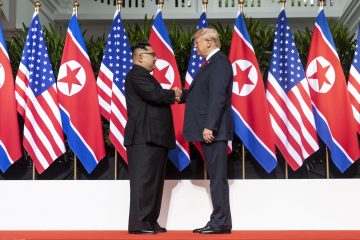
Three reasons why foreign policy negotiations during the 2020 campaign season are a bad idea
“Deals are my art form. Other people paint beautifully on canvas or write wonderful poetry. I like making deals, preferably big deals.” [Donald Trump, The Art of the Deal] If history is any guide, there is reason to hope that President Trump belatedly takes up painting this campaign season. Over the next 18 months or so, as always seems to be the case in American politics, the looming presence of a presidential election will throw up a whole host of impediments to the pursuit of optimal diplomatic agreements abroad, including with China, Afghanistan and North Korea. A brief look back at critical negotiations during the wars in Vietnam and Iraq suggests a crucial lesson: electoral politics and diplomacy do not mix …









